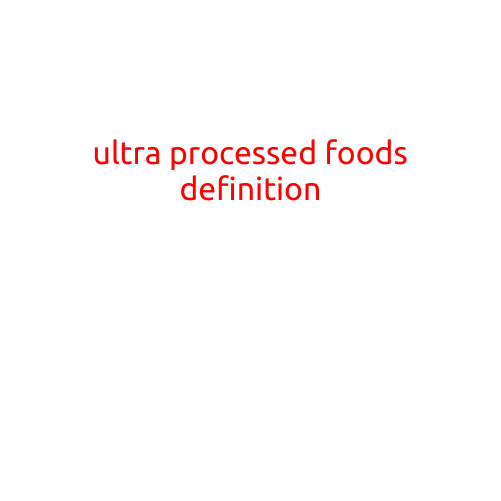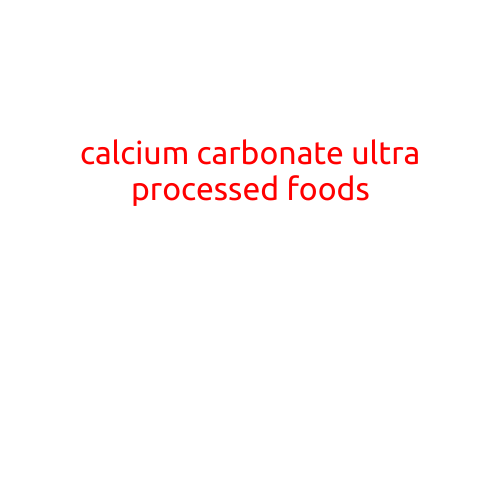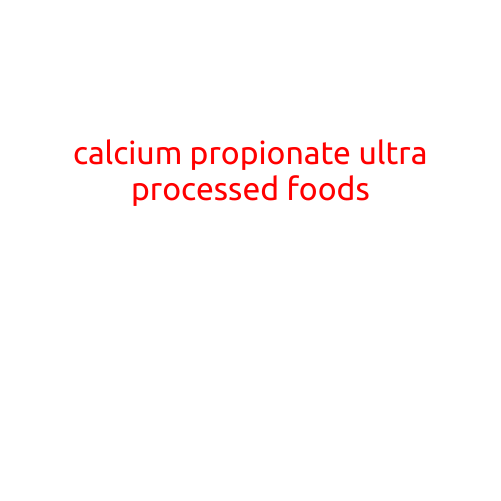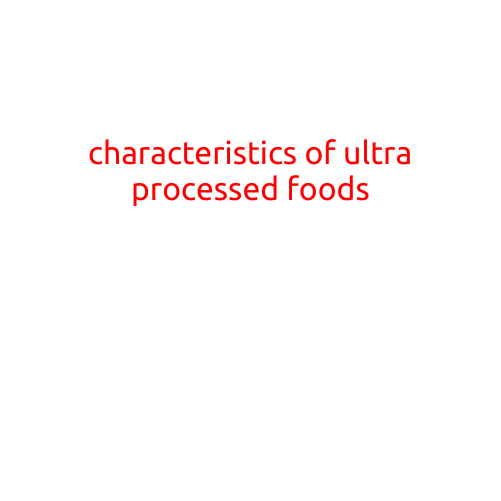
Ultra Processed Foods: Definition and Impact on Your Health
In today’s fast-paced world, it’s not uncommon to rely on convenient and affordable food options. With the rise of processed foods, the term “ultra-processed” has gained prominence in the culinary world. But what does it mean, and how does it affect our health?
What are Ultra Processed Foods?
Ultra-processed foods are a category of foods that have undergone significant processing and transformation from their natural state. These foods are often manufactured from ingredients that are derived from other foods, such as starches, sugars, and fats. According to the NOVA food classification system, ultra-processed foods are those that require minimal processing, cooking, or transforming from ingredients that are typically eaten raw.
Examples of ultra-processed foods include:
- Baked goods, such as cookies, cakes, and pastries
- Sugary drinks, like soda and candy
- Frozen meals, like TV dinners and pizza
- Processed snacks, such as chips and crackers
- Breakfast cereals, like frosted corn flakes
- Refined flour products, like white bread and pasta
Characteristics of Ultra Processed Foods
Ultra-processed foods are typically characterized by their high levels of:
- Added sugars: Many ultra-processed foods are designed to be highly palatable and addictive, which often involves adding large amounts of sugars.
- Sodium: Processed foods often contain high levels of salt to extend shelf life and enhance flavor.
- Artificial additives: To improve texture, color, and shelf life, manufacturers may add artificial preservatives, flavors, and colors to ultra-processed foods.
- Fatty acids: Ultra-processed foods may be high in fat, particularly saturated and trans fats, which can increase cardiovascular risk.
- Low fiber: Ultra-processed foods often contain low levels of fiber, which can lead to digestive issues and decreased satiety.
The Impact of Ultra Processed Foods on Health
Consuming ultra-processed foods regularly has been linked to various health issues, including:
- Weight gain: The high levels of added sugars, sodium, and unhealthy fats in ultra-processed foods can lead to weight gain and obesity.
- Cardiovascular disease: The high sodium and saturated fat content in ultra-processed foods increase the risk of cardiovascular disease, including heart attacks, strokes, and high blood pressure.
- Type 2 diabetes: The high levels of added sugars in ultra-processed foods can lead to insulin resistance and an increased risk of developing type 2 diabetes.
- Digestive issues: The low fiber and high sodium content in ultra-processed foods can lead to digestive issues, such as constipation, bloating, and diarrhea.
How to Make Healthier Choices
While it may seem challenging to avoid ultra-processed foods entirely, there are ways to make healthier choices:
- Read labels: Pay attention to ingredient lists and nutrition labels to identify foods that are high in added sugars, sodium, and artificial additives.
- Choose whole foods: Prioritize whole, unprocessed foods like fruits, vegetables, whole grains, lean proteins, and healthy fats.
- Cook from scratch: Cooking meals from scratch allows you to control the ingredients and nutritional content of your food.
- Aim for variety: Vary your diet to include a wide range of foods from different food groups to ensure you’re getting all the necessary nutrients.
In conclusion, ultra-processed foods are a significant contributor to chronic diseases and poor health outcomes. By understanding their definition and characteristics, you can take steps to make healthier choices and reduce your reliance on these foods. Prioritize whole, unprocessed foods, and cook from scratch to ensure a balanced and nutritious diet.





